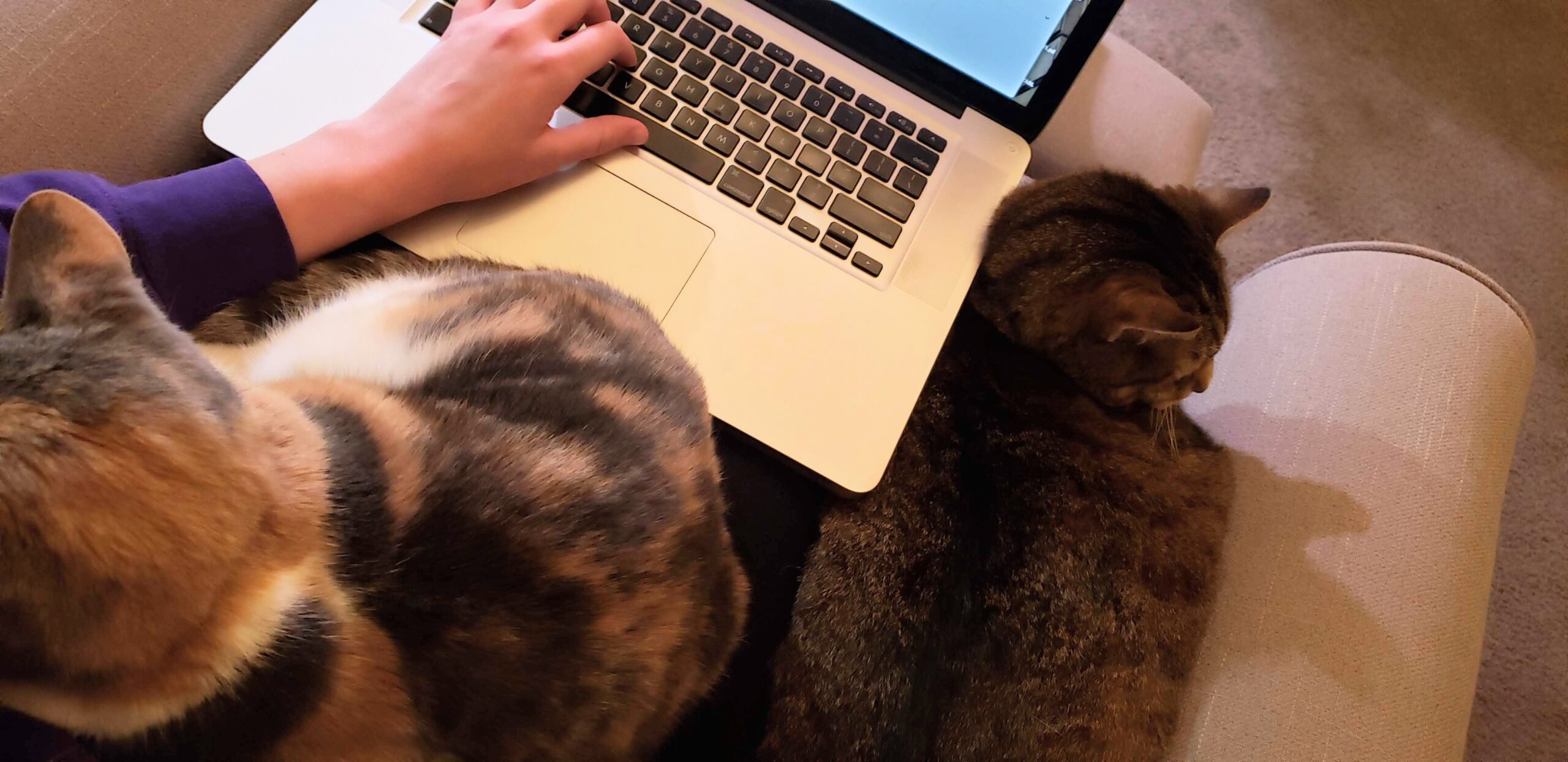Continuing on my self-care kick, I want to talk about fear. I like keeping things fun and light-hearted, you know? Hopefully you can bear with me through another frivolous frolic through the fields of fantastic fun and… what else starts with F?… oh yeah, FEAR.
What Is Fear?
If you don’t know what fear is, then either you’ve led an incredibly blessed life or there’s something actually wrong with you. Fear is a very basic biological and emotional response to threat stimuli. It’s what makes you run away from the hungry cave lions instead of trying to make friends with them. Basically, it’s your body doing its best to keep you alive and your brain doing its best to remind you about dangers.
So at its core, fear is very useful. However, it can also keep us from pursuing things that might be beneficial. Too much fear of cave lions can prevent you from going out in search of food that you really do need; too much fear of social interactions can prevent you from going outside. At some point these fears tip into the world of phobias, or irrational fears, in which your biological/emotional response far outweighs the actual threat.
We also have an upgrade to fear called anxiety. This happens when you start to be afraid of being afraid. Again, it’s something that can be very useful in motivating you to do things, but there’s also a tipping point of too much. Then we’re in the world of anxiety disorders, which includes not only general anxiety, social anxiety, and panic disorders, but also posttraumatic stress disorder and obsessive-compulsive disorder (DSM-5). In general, these develop from both genetic predisposition and environmental stimuli.
Should We Be Afraid?
First answer, yes. As I said before, fear is useful in keeping us alive and progressing. It is perfectly normal and healthy to be afraid in dangerous or threatening situations. If you’re in a situation like that, please be afraid. Use that increased adrenaline to get yourself to safety.
Second answer, in moderation. Fear triggers the classic “fight or flight” response, which isn’t super useful when what you’re afraid of is intangible. And, of course, the modern world is full of intangible fears: public speaking, job interviews, performances, tests, and all kinds of interpersonal interactions. The physical symptoms (elevated heart rate, increased sweating, adrenaline shakes) can easily get in the way of what you’re trying to do. So we have to learn to manage our fear.
Third answer, do you want to be? It is October, the time of Halloween, haunted houses, and scary movies. Some people enjoy the thrill of being afraid. Some people are adrenaline junkies and enjoy cliff diving. If that’s your jam, then go for it! Just don’t invite me to watch that scary movie with you.

Fear and Self-Care
Obviously, there’s a complicated relationship at work here. We have to find a balance between having enough fear to care about things, but not so much that it becomes debilitating. Where that balance is varies from person to person, so you’ll have to find your own point.
If you feel like you are excessively anxious, know that this is not a failing. We are hardwired for fear; your wiring is just a little more aggressive than you need it to be. The good news is that there are plenty of resources available to help! You just have to get over the initial hurdle of seeking that help. There are three main (non-exclusive) methods of treating excessive anxiety: therapy, drugs, and our good friend self-care.
Self-care can also be a preventative measure to developing anxiety disorders. The median age of onset of generalized anxiety disorder (which, for the record, is a specific disorder) is 30 years old. This is, probably not coincidentally, also around the age at which life starts to set in (like a stain). You’re probably either established in your career and might be getting disillusioned with it, or you’re not established and you’re panicking that you’ll never succeed. Either you have a family and you’re (just a little) mourning your loss of freedom, or you don’t and it feels like you never will. There is always something to worry about, if you want. Self-care can help us keep things in check.
Using Fear
Fear can be a powerful inhibitor: it can keep you from pursuing your dreams, it can keep you from making changes, it can keep you from seeking help. It can also be a powerful motivator, as a drive to stay alive (fear of dying), a drive to succeed (fear of failure, fear of disappointing people), or a drive to thrive (fear of all kinds of starvation). So how do we find that balance that allows us to harness fear, instead of the other way around?
This is starting to sound like the cult-y kind of self-help seminar. Unleash your inner wolf! Grab life by the horns! Say yes to everything! Eat a bowl of scorpions! FACE YOUR FEARS! … ugh
But really. Baby steps. Fear exists for a reason, we just have to find ways of working with it. Try to identify what you’re afraid of, or what triggers your anxiety. I personally have to break things down into steps in order to do them, because big projects paralyze me. An overload of information or stimuli is a common stressor. So is a loss of control, or a feeling of needing to meet expectations. While fear is causing these stresses, it could also be your route to overcoming them. Find a way to be just afraid enough.
Managing Fear
One common way of treating phobias is desensitization. You are exposed to what you fear (in a controlled environment) until you’re no longer afraid. This works for lower levels of fear too. Think of basic animal training: if your dog is afraid of people, you can gradually and gently acclimatize him to family, then friends, then maybe strangers. If your horse is afraid of flapping objects, again you can gently acclimatize her. See if you can gently acclimatize yourself to your fear.
Fears and anxieties are also helped by sharing them. For whatever reason, our brains just love other brains. Just talking to your friends, family, and/or therapist can help a shocking amount. Try communicating today!™
Other methods include meditation and exercise. Quiet time alone, intentionally quieting your ever so noisy brain, can help you reset to a calmer state. Exercise can help burn off the extra energy that your body likes using to fuel its anxiety. Or you can combine the two and do yoga, or maybe some kind of martial arts (I’m not an expert on those).
Fear and Society
You thought maybe you’d escaped my soap-boxing, didn’t you. WRONG. Fear isn’t just an individual thing, it can also be societal. A generalized fear of change is what can keep societies from adapting and progressing, but it can also help hold societies together. It is also a method of control: Machiavelli, whose ideas are still influential today, (in)famously wrote in The Prince that it’s better to be feared than loved. Fear is also a common undercurrent in dystopian novels and shows, as well as in real-world oppressive regimes.
As with managing personal fears, managing societal ones starts with identification. What about a change scares you? Is it a loss of status, the fear of the unknown, or historic precedents that indicate bad idea? We first need to know the root cause before we can do anything about it.
Fear can be infectious. If Gorp goes running past looking terrified, it might be a good idea for you to be primed for being afraid to, so you’re ready when the cave lion comes into view. The problem is that our brains aren’t great at discriminating between CAVE LION AHH and POOL TABLE AHH. Herd mentality based in fear is something to watch out for, lest it sweep you up and away from your rational thinking.





One suggestion to add for people suffering from anxiety: CBT workbooks! I’ve had tremendous success using them in conjunction with talk therapy and medication!